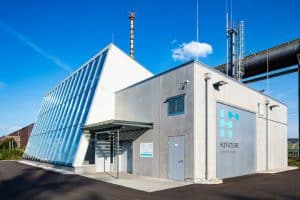Europe is leading the way in developing the breakthrough technologies needed to realise hydrogen’s energy potential. With hydrogen-powered buses and taxis being used across major cities, we have demonstrated that the technology can be used on a large scale.
Europe is a global leader for renewable energy, and fuel cells and hydrogen (FCH) technologies are a major part of that mix. Hydrogen can contribute up to 24 % of Europe’s energy needs, reduce annually CO2 emissions by 650 million tonnes, create 5.4 million jobs and generate 820 billion Euro annually in Europe by 2050, according to an FCH JU study.
“Hydrogen will become key for industrial sectors,” said European Commission President Ursula von der Leyen in her recent BusinessEurope Day 2020 speech. “We want to stimulate investment and we want innovation all across the value chain. We want to involve industries, be they large or be they small. We want to create lead markets for new technologies.”
And this is exactly what our partnership has been doing. As a public-private partnership between industry and the EU, Fuel Cells and Hydrogen Joint Undertaking (FCH JU) has co-funded over 260 cutting-edge research and demonstration projects since 2008 to bring the technology to the point where it is being used successfully across different sector.
Better electrolysers
The advance made to develop innovative electrolyser technology is one example of the success in delivering breakthrough hydrogen production technologies to the market. Electrolysers store renewable energy through a process whereby electricity splits water into hydrogen and oxygen.
…
read more in H2-international May 2020
Author:
Bart Biebuyck
executive director of the Fuel Cells and Hydrogen Joint Undertaking (FCH JU)

























0 Comments
Trackbacks/Pingbacks